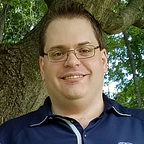Why Self-Diagnosis Must Be Discussed
The single most controversial debate I have observed within the autism community has been, hands down, self-diagnosis. On one side, well-educated, often non-autistic mental health professionals and parents of autistic children strongly believe some of us are either selfishly faking it to gain attention or are grossly misinformed and reckless.
On the other side are the undiagnosed, who believe they are actually autistic and are compelled to act for the preservation of their mental health, as well as other parents of autistic children in support of them. That is why, all throughout the “Autism Experience,” I have been setting up this article. I have given an abundance of proof why I must take this position. Using objectivity, legitimate observations, and logical conclusions, this article will set the record straight because it is time-critical for us.
As a primary source with firsthand experience, in my article, Knowledge Is Power, I have reached the following conclusions. First, and most importantly, in 2019, I was left to figure out autism spectrum disorder, a complex neurological and developmental disorder, on my own. My healthcare providers lacked accurate research data, for example, to make brochures available to clients.
Second, publicly available research data accessible via the internet was inconclusive. Third, I was diagnosed well into adulthood at age 37. This exposed me to developmental and social problems as early as elementary school that disrupted my entire life. Finally, not all mental health professionals take autism seriously in their research or care. As a result of this division, I have seen not only the rise of self-diagnosis but also at least a temporary need for it.
I anticipate some mental health professionals may disagree with this and be dissatisfied by it. The scattered state of autism research forces us to take matters into our own hands. We must be consulted if the quality of our care is to improve. Ask us whether the resources you stipulate and fund are actually helping us, because I have seen evidence they are not effective or are not available at all. It is that simple.
On the other hand, self-diagnosis is not quite as simple. Ideally, mental health professionals should be diagnosing complex behavioral conditions such as autism or ADHD. I do foresee a legitimate period of time where we must address our life needs as a result of problems with law enforcement and discrimination. Self-diagnosis does require being responsible if you are wrong. So, great care must be taken to ensure that it is done right.
If you are 21 or older and suspect you may be autistic but do not have an autism support group, seek out knowledgeable, inclusive, and diagnosed autistic people like me on social media. If you get bullied, find respectful autistic people who are able to help. Find online discussion groups where you can ask questions and absorb information to learn what you can understand at your pace.
Make sure to protect yourself. Miscommunication issues can lead to termination of employment, reduce access to services, and put your life at risk. Experienced and diagnosed autistic people, such as myself, will help as best we can, no matter who or where you are. Until you are evaluated by a certified professional who takes your case seriously, rely on us because we are autistic. We have to take these issues seriously for our own safety and well-being.
As awareness of adult age groups and autism increases, our diversity has become clearer, along with the belief that we are progressively divided because of it. It is true. We have our differences. We also have something that spans the entire world and should not be left behind.
We have each other.
#LetThatThinkIn
Welcome to the next Autism Experience.
No One Should Be Left Behind.
